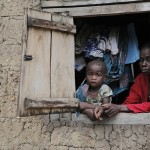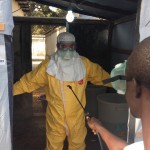Despite more than 25 documented outbreaks of Ebola since 1976, our understanding of the disease is limited, in particular the social, political, ecological, and economic forces that promote (or limit) its spread. In the following study, we seek to provide new ways of understanding the 2013-2015 Ebola pandemic. We use the term, ‘pandemic,’ instead of ‘epidemic,’ so as not to elide the global forces that shape every localized outbreak of infectious disease. By situating life histories via a biosocial approach, the forces promoting or retarding
Continue reading →
This paper seeks to understand the fear many Guineans feel towards Ebola response initiatives and why the educators, doctors and burial teams have sometimes encountered resistance, occasionally violent. Resistance has been catastrophic for the epidemic, preventing treatment, contact tracing and quarantine, permitting its spread. The paper sketches a history of dissent and violence during the epidemic before showing how some actions that Ebola response teams interpret as ‘resistance’ are less actions ‘against’ Ebola response, than actions that have their own cultural logics. But the paper
Continue reading →
The scale of West Africa’s Ebola epidemic has been attributed to the weak health systems of affected countries, their lack of resources, the mobility of communities and their inexperience in dealing with Ebola. This briefing for African Affairs argues that these explanations lack important context. The briefing examines responses to the outbreak and offers a different set of explanations, rooted in the history of the region and the political economy of global health and development. To move past technical discussions of “weak” health systems, it
Continue reading →


